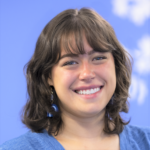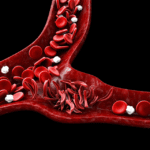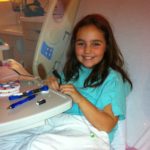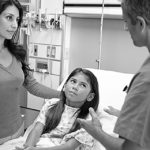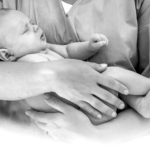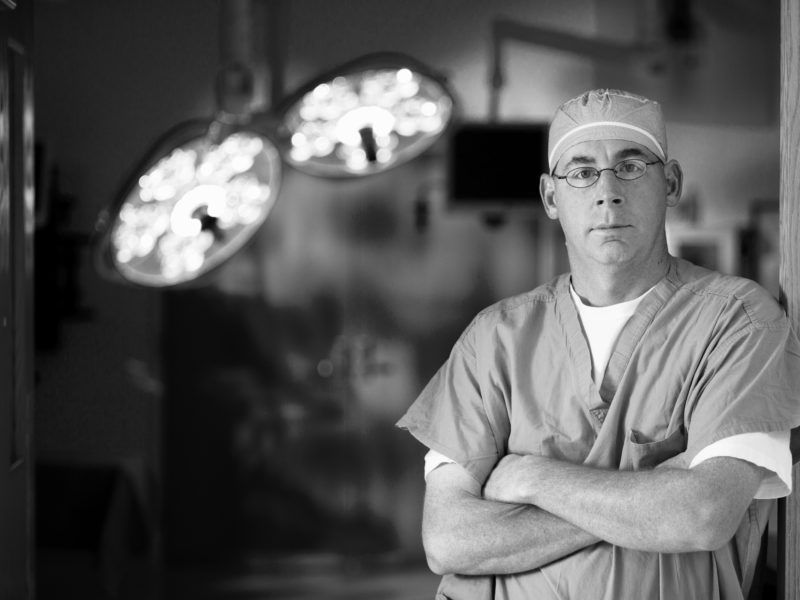Featured Researcher — Linda Baker, MD
Featured Researcher — Linda Baker, MD https://pediatricsnationwide.org/wp-content/themes/corpus/images/empty/thumbnail.jpg 150 150 Natalie Wilson Natalie Wilson https://pediatricsnationwide.org/wp-content/uploads/2021/06/Natalieheadshot3-2.png- February 08, 2023
- Natalie Wilson
Linda Baker, MD, a renowned expert in prune belly syndrome (PBS), joined Nationwide Children’s as a research director and principal investigator in the Kidney and Urinary Tract Center and The Ohio State University as a clinical professor of Urology at the end of 2022. Dr. Baker has met, evaluated and cared for over 180 children with PBS.
The rare condition affects just 1 in 50,000 births, and nearly all (95%) of people with PBS are males. Babies with PBS often need multiple surgeries by age 2.
Dr. Baker’s recent research has focused on identifying the genetic basis of PBS to understand bladder physiology and underactivity states.
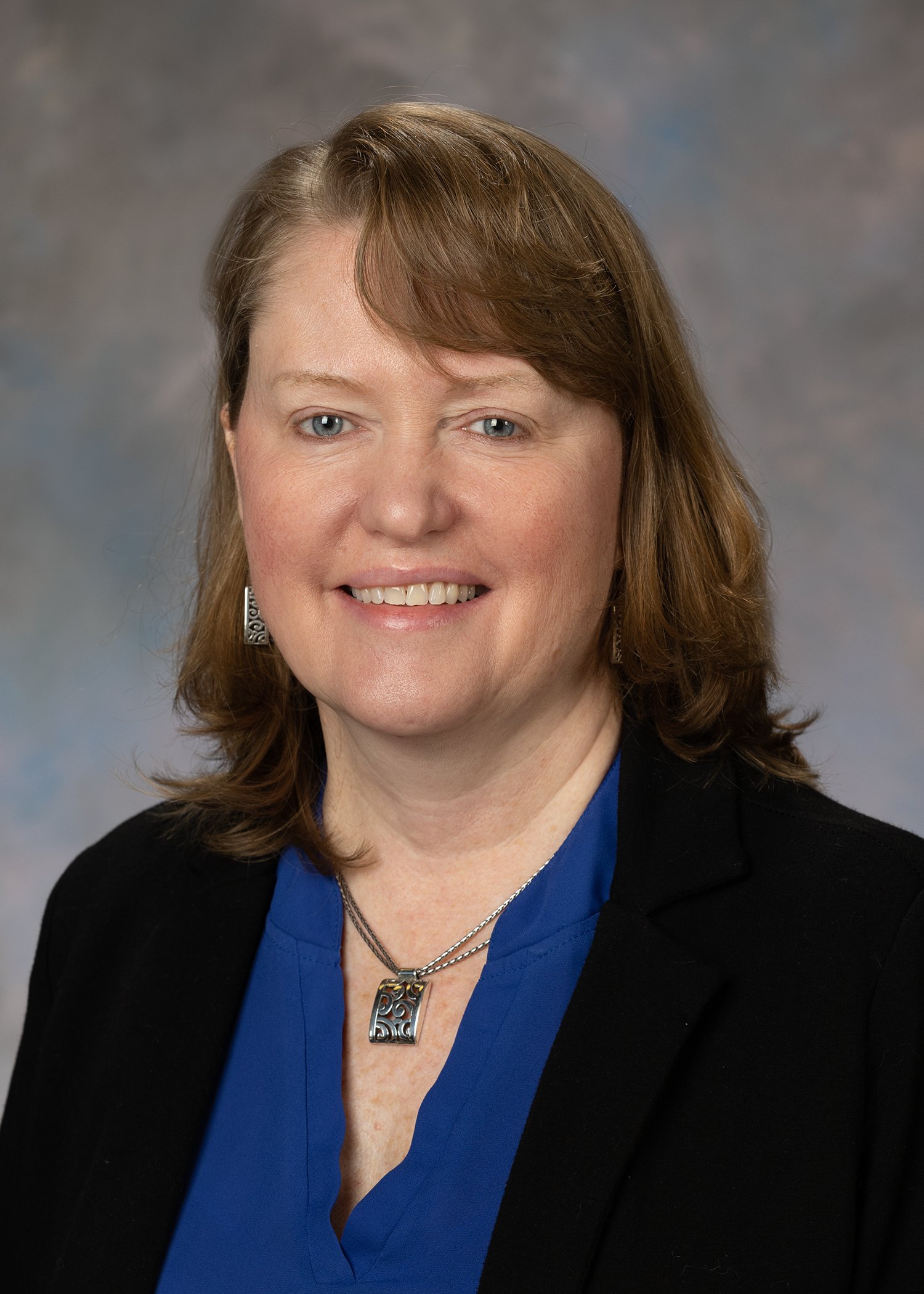
Her laboratory combines genetically engineered mouse models of pediatric urologic birth defects with clinically valuable human samples.
Clinically, Dr. Baker specializes in complex genitourinary surgical reconstruction, and she is a national leader in corrective vaginal surgery. Overall, her work contributes to new discoveries for children with a variety of kidney and urinary tract conditions, including PBS, kidney stones, disorders of sexual development, cryptorchidism, congenital adrenal hyperplasia, testicular torsion and congenital female vaginal anomalies.
Before joining Nationwide Children’s, Dr. Baker was a faculty member in the Division of Pediatric Urology at Children’s Health Dallas and a professor of Urology and director of Pediatric Urology Research at the University of Texas Southwestern Medical Center Department of Urology. During her tenure, Dr. Baker was recognized with an award for her teaching.
Dr. Baker earned her bachelor’s degree from Western Kentucky University and medical degree from the University of Louisville. She then completed a urology residency at the University of Virginia, where she went on to be an American Foundation for Urological Disease Research Scholar. Dr. Baker pursued her postdoctoral fellowship in pediatric urology at The Johns Hopkins Hospital.
To date, Dr. Baker has authored 23 book chapters and over 120 publications. She has a medical device patent, has held 32 visiting professorships nationally and internationally, and helped coauthor the 2014 AUA Practice Guidelines on cryptorchidism. She also serves on the Medical Advisory Board of the nonprofit Prune Belly Syndrome Network (PBSN).
Read on to learn more about Dr. Baker and her work.
Why did you decide to pursue a career in your field?
My mom was microbiologist, and my dad was a veterinarian. I sang, I played flute, piccolo, piano and tenor sax, and I always liked gardening. People always said, ‘You work well with your hands and with people — you should become a doctor.’ So, I went down the path to medical school and the surgical profession.
I found birth defects, embryonic development and urology all fascinating, so I went into pediatric urology. This was at the same time that next generation sequencing technologies emerged, and we gained a whole new way to look into what is causing birth defects. As I was beginning to work with prune belly syndrome (PBS), a condition that nearly always affects males rather than females, I thought there must be something genetic going on.
Patients with PBS mainly receive care for their condition from pediatric urologists. There wasn’t much research being done on the condition by anyone, let alone surgeons, and let alone genetics-based research. There weren’t champions trying to figure out what caused PBS. It seemed like it went under the radar. Additionally, I started working with the Prune Belly Syndrome Network (PBSN) nonprofit and family network for the first time in 2009. It was the combination of the gap in research, the emergence of new technology and the PBSN that led me to become focused on the condition.
I love a challenge, and I love a good riddle. I really like complex surgery, reconstructions, the science and the molecular biology, the genetics — I like it all. I love to try to take something that’s perplexing, like PBS, and tease it apart and try to understand each piece. And I like to do things no one else is doing. It’s exciting to try to make discoveries that can help a bunch of kids who don’t have anybody being their champion.
So, what has that research ultimately looked like?
My PBS research has gone in three main directions.
The first focus is on human genetics. It’s complicated to find the genes that cause the disorder. This is a population with a significant number of children that don’t survive after youth, and many of those who do survive have impacts on their reproductive health, so it’s hard to determine if this condition would be passed to other generations by those who have it. However, we have identified two genes I’m focusing on right now.
The second focus of my PBS research is on developing a preclinical model of the disease, which involves using laboratory mice. And the third is on understanding the physical limitations of the disease. There really hasn’t been a comprehensive or systematic characterization of those limitations yet, and PBS cases range in severity.
Currently, kids with PBS are advised against playing sports. But for many, the condition didn’t impact their cognitive development or the development of their arms and legs. Can they play sports? Should we advise each individual on a case-by-case basis?
Additionally, kids with prune belly syndrome often get abdominoplasty surgery — the fanciest tummy tuck you’ve ever seen — to remodel the shape, form and function of their belly wall so they can cough better, pee better, poop better — do all the things they need strong bellies to do. But are there different surgery options that are best for each individual patient?
Or, what about physical therapy? Does physical therapy help patients with PBS, or does it do more harm than good?
None of these questions have been studied, so a lot of things can be done to help these patients.
Overall, my long-range goal is really to increase awareness and come up with ways to help people who have the disease live with it and have better outcomes and the best quality of life they can.
Fun Facts About Dr. Baker
What do you usually eat for breakfast?
Every morning, I eat Peanut Nature Valley Sweet & Salty granola bars.
What would be your dream job (besides working in research)?
I love math, so if I had a totally different career, it would probably be something in mathematics. Maybe teaching kids math.
What are your favorite ways to relax?
I love hiking and running with my husband. I also like to grow flowers, vegetables and moth orchids. Phalaenopsis like a lot of humidity and some sun, but it’s really hard to kill them. They’re pretty tolerant.
What was your favorite holiday gift?
My husband got me a honey extractor for Christmas. I am a farm girl – I grew up on a 10-acre farm in Kentucky, and we had honeybees, so I learned how to do beekeeping. I inherited the farm in Kentucky and have wanted the equipment to put bees back on it, so I’m really excited about that.
The two best ways to kill a kidney are to let it get infected with a urinary tract infection (UTI) or to have urine that’s not properly being drained create back pressure. And those with PBS are going to battle not emptying their bladder well their whole lives. As a result, 67% of PBS survivors will go into kidney failure and need dialysis or a kidney transplant. If we can reduce that number, we’ll have done a good thing.
What brought you to Nationwide Children’s?
There are fantastic opportunities for research here. The work that has already been done and is being done meshes really well with my work. Coming here also worked well for my family. But ultimately, it was Brian Becknell, MD, PhD, Rama Jayanthi, MD, and John David Spencer, MD, who brought me here.
All the pediatric urologists in the country kind of know each other. Dr. Jayanthi knew I’d gotten to be internationally known for my PBS work and had two R01s to study PBS. Then, about a year a half ago, I did a virtual invited lecture about that work, and it was after that they began to reach out to me about coming here.
What’s next?
I’ve joined the leadership team in the Kidney and Urinary Tract Center, and our hope and plan is to continue working with other pediatric urologists and building a bigger team.
I’m also interested in building a PBS destination center to raise the bar for the care we can offer kids with the condition and continue building a research program that integrates basic scientists, clinicians — nephrologists and urologists — and the wonderful physical therapists here. We also have a strong group of researchers focused on neuromuscular conditions like Duchenne muscular dystrophy (DMD) and spinal muscular atrophy (SMA). In a lot of ways, what kids with PBS have is a skeletal and smooth muscle problem, but they’re not sent to neurologists, so they don’t benefit from the same body of knowledge. But we can tap into that knowledge by collaborating across our teams.
Another exciting and cool thing is that before COVID hit, PBSN used to have annual or semiannual conventions. When I was in Dallas, they moved them all to Dallas, and since I moved to Columbus, they’re holding the next one in Columbus. It will be in July 2023 and marks the network’s first event since COVID-19 restrictions have been lifted.
About the author
Natalie is a passionate and enthusiastic writer working to highlight the groundbreaking research of the incredible faculty and staff across Nationwide Children's Hospital and the Abigail Wexner Research Institute. Her work at Nationwide Children's marries her past interests and experiences with her passion for helping children thrive and a long-held scientific curiosity that dates back to competing in the Jefferson Lab Science Bowl in middle school. Natalie holds a bachelor’s degree in sociology from Wake Forest University, as well as minors in women's, gender & sexuality studies and interdisciplinary writing. As an undergraduate student, Natalie studied writing and journalism, engaged with anthropological and sociological research with a focus on race and ethnic relations, served as executive editor for the student newspaper, the Old Gold & Black, and gained marketing experience as an intern for a nonprofit entrepreneurial incubator, Winston Starts, as well as by working for Wake Forest University School of Law Office of Communication and Public Relations and its Innocence and Justice Clinic.
-
Natalie Wilsonhttps://pediatricsnationwide.org/author/natalie-wilson/
-
Natalie Wilsonhttps://pediatricsnationwide.org/author/natalie-wilson/
-
Natalie Wilsonhttps://pediatricsnationwide.org/author/natalie-wilson/
-
Natalie Wilsonhttps://pediatricsnationwide.org/author/natalie-wilson/
- Posted In:
- Featured Researchers
- Research



